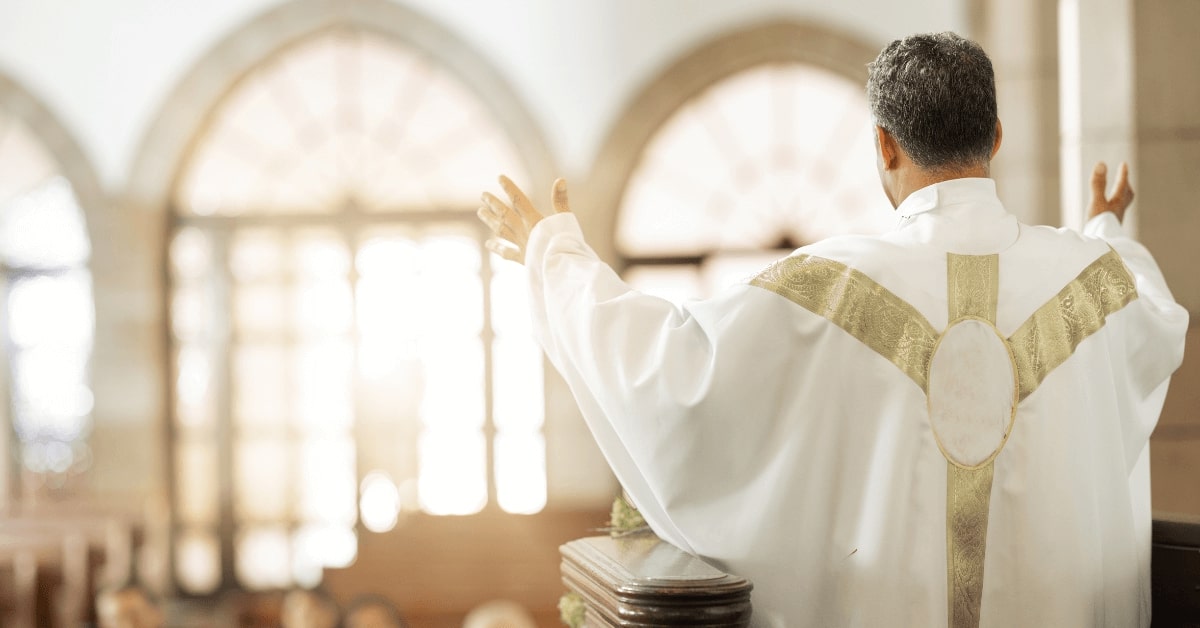When it comes to Christian leadership, the titles “pastor” and “priest” are often heard, but many may not fully understand the distinctions between the two roles. While both positions are pivotal in guiding their congregations spiritually, they arise from different denominational contexts and carry unique responsibilities. This article explores the key differences between a pastor and a priest, shedding light on their origins, roles, and significance within Christianity.
Historical Background
The terms “pastor” and “priest” have rich historical roots. The word “pastor” derives from the Latin term “pastor,” meaning shepherd, symbolizing the pastoral care and guidance provided to a congregation.
On the other hand, “priest” comes from the Greek word “presbyteros,” meaning elder, which highlights the authoritative and sacramental roles of priests in early Christian communities.
Denominational Context
Pastors are predominantly found within Protestant denominations, including Baptist, Methodist, Lutheran, and Presbyterian churches.
In contrast, the title of “priest” is commonly associated with the Roman Catholic, Orthodox, and Anglican traditions. Understanding these denominational contexts is crucial in appreciating the distinct functions and expectations of pastors and priests.
Educational and Ordination Requirements
Becoming a pastor typically involves completing a theological education, such as a Master of Divinity (M.Div.) degree, followed by an ordination process within a specific denomination. This process often includes practical ministry experience and examinations.
In comparison, priests undergo extensive education, usually attaining a seminary degree. The ordination process for priests, particularly in the Catholic and Orthodox traditions, is rigorous, involving several stages, including candidacy, diaconate, and finally, priesthood ordination.
Roles and Responsibilities
Pastors serve as leaders of their congregations, focusing on preaching, teaching, and pastoral care. They are responsible for delivering sermons, leading Bible studies, and providing spiritual counseling to their members. Additionally, pastors often oversee church administration and community outreach programs.
Priests, however, have a more sacramental role. Their primary duties include administering the sacraments, such as the Eucharist, Baptism, and Confession. Priests also lead the Mass, offer spiritual guidance, and serve as mediators between the congregation and God.
Liturgical Functions
In worship services, pastors typically focus on preaching and teaching from the Bible. They may also lead prayers, hymns, and other forms of worship but do not usually administer sacraments in the same way priests do.
Priests are central to the liturgical life of their churches, especially in the celebration of the Eucharist. Their role in conducting Mass and other sacramental rites is crucial to the spiritual life of their congregations.
Community Involvement
Pastors often play an active role in community engagement and social services. They may organize and participate in outreach programs, charity events, and community service projects, reflecting their commitment to serving both their congregation and the broader community.
Priests also engage with their communities, often through parish activities and charitable organizations. Their involvement may include running food banks, supporting local schools, and providing assistance to those in need, emphasizing the church’s mission of service and compassion.
Theological and Doctrinal Differences
The theological perspectives of pastors are shaped by the doctrines of their respective Protestant denominations. These can vary widely but often emphasize personal faith, direct relationship with God, and the authority of Scripture.
Priests’ roles are deeply rooted in the theological and doctrinal beliefs of the Catholic, Orthodox, and Anglican churches. This includes the importance of sacraments, apostolic succession, and the interpretative authority of church traditions and teachings.
Personal and Spiritual Qualities
Pastors are expected to exhibit qualities such as compassion, integrity, and a deep understanding of Scripture. Their ability to connect with and support their congregation is vital to their ministry.
Priests are often viewed as spiritual fathers, expected to demonstrate holiness, dedication, and a deep commitment to their faith. Their role as intermediaries between God and the congregation requires a strong spiritual foundation and a life dedicated to service.
Visual Differences
Pastors:
- Dress Code: Pastors in many Protestant denominations have a more flexible dress code. They may wear formal suits, business casual attire, or specific clerical garments depending on the denomination and the occasion.
- Clerical Collar: Some Protestant pastors wear a clerical collar, but it is not universally adopted across all Protestant denominations.
- Robes and Stoles: In some Protestant traditions, pastors wear robes and stoles during worship services. The color and style of these garments can vary based on the liturgical season and the specific tradition.
Priests:
- Cassock: Priests, particularly in the Roman Catholic, Orthodox, and Anglican traditions, often wear a cassock, a long black garment with buttons down the front.
- Clerical Collar: The clerical collar is a common feature of priestly attire, making it a distinctive visual element.
- Vestments: During liturgical services, priests wear specific vestments such as the alb (a long white robe), chasuble (a sleeveless outer vestment), and stole (a long, narrow strip of cloth). The colors of these vestments change according to the liturgical calendar (e.g., white for Easter, purple for Lent).
Conclusion
In summary, while both pastors and priests play essential roles in their respective Christian traditions, they differ significantly in their historical backgrounds, denominational contexts, educational paths, roles, and responsibilities.
Understanding these differences enhances our appreciation of their unique contributions to the spiritual and communal life of their congregations. As we explore our own faith traditions, recognizing the distinctive qualities of pastors and priests can deepen our respect and gratitude for their dedicated service.
